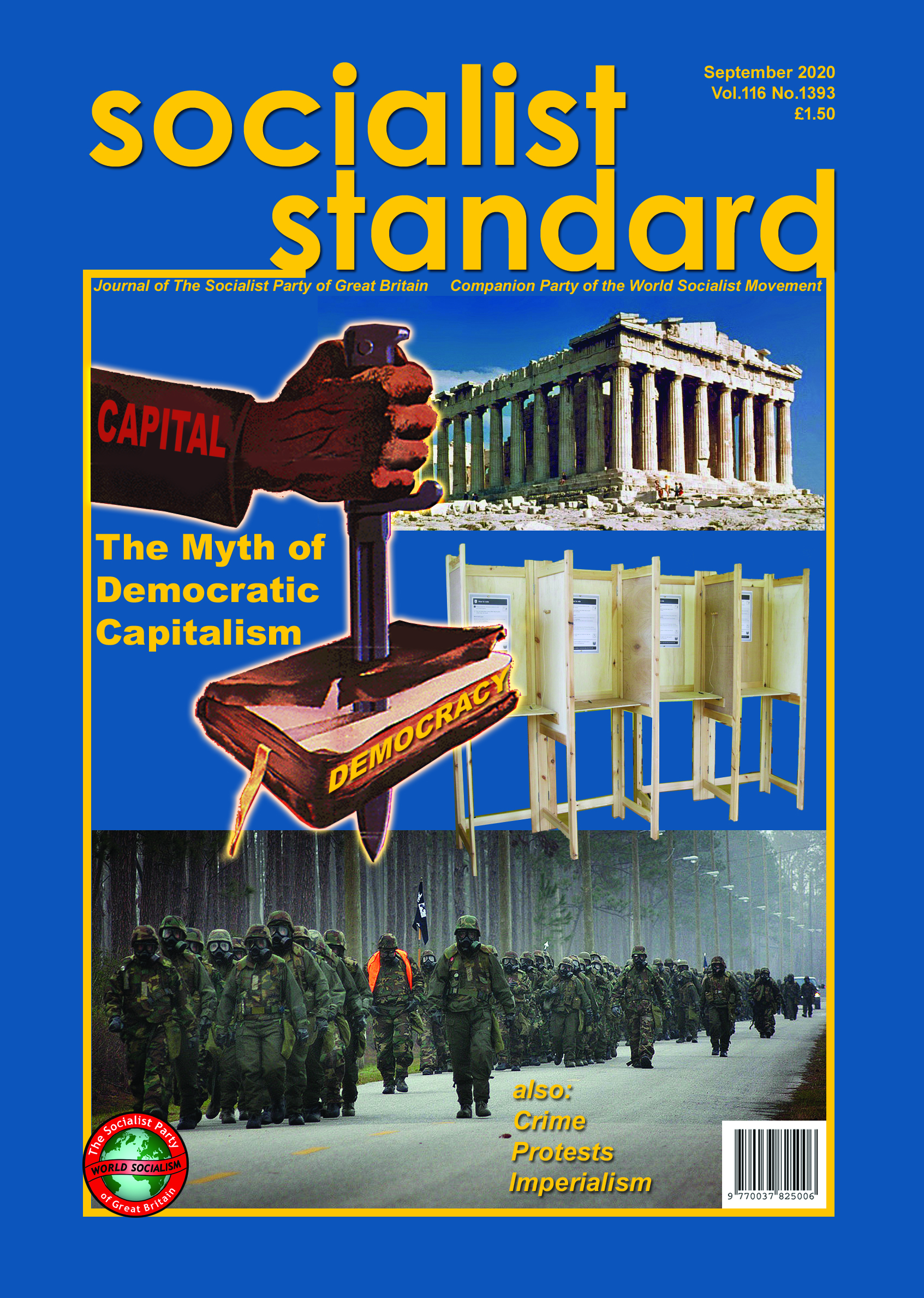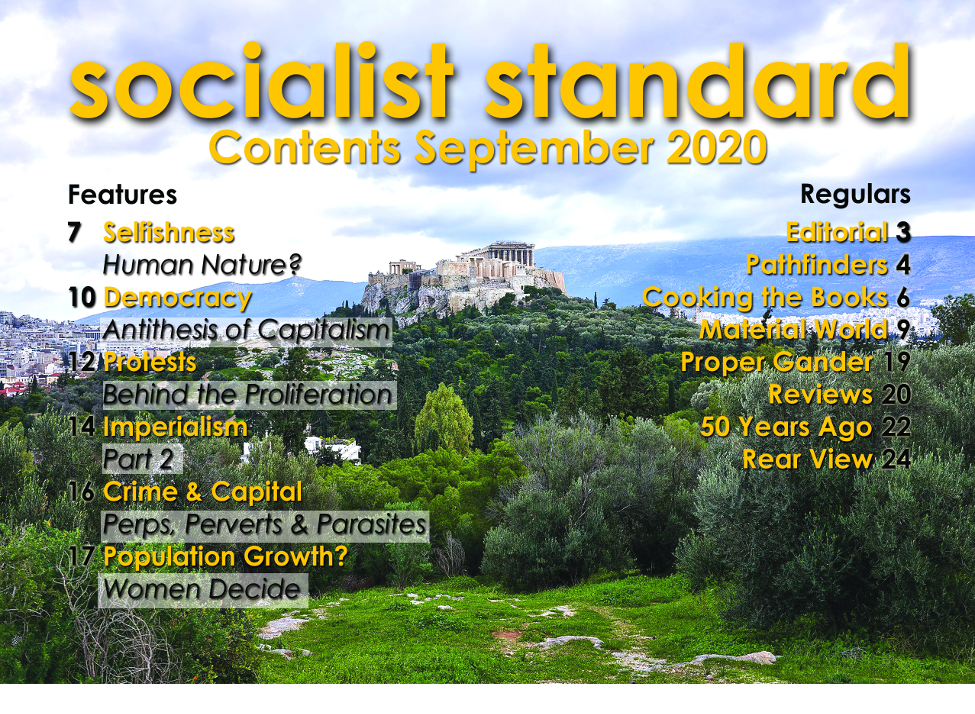An electorate which is so brainwashed into supporting capitalism, in which the great majority are simply voting for the continuance of their own exploitation, such strange “leaders” as Trump can rise to the top. And it is no part of a socialist’s business to recommend more or less efficient or honest contenders as executives of American capitalism. All we can say is that the workers of the USA is if you are scanning the horizon for the great man who is to come and heal all ills, you are going to be as disappointed in the future as you have been in the past.
Trump presented himself as offering a breath of fresh air with policies which include massive tax cuts, supposedly designed to “get government off the backs of the American people”, and stimulate investment and production. There would be reductions in welfare spending but increased expenditure on defense. Of course all the advertising and all the money in the world may be sufficient to convince the voters, but they are no help when it comes down to the real nitty-gritty, putting the promises into action and curing economic ills.
The call for tax cuts, for instance, may sound as if it will automatically increase the take-home pay of every worker. But this is misleading, as taxes are in fact a charge on the employer rather than on the worker. Workers are paid, in general, the value of their labor power - enough to enable them to maintain themselves and to reproduce the next generation of wage slaves. The difference between the value of their labor power and the value their labor produces— known technically as surplus value — is appropriated by the capitalist class, and it is out of this that taxes are paid. The end of government is to defend the interests of the ruling class, by being responsible for activities such as defense and policing that individual companies are unable to undertake. The capitalists want the benefits of government as cheaply as possible — hence their constant calls for reduced state expenditure. Tax cuts benefit the employers, not the workers.
One supposed effect of transferring money from state to private hands is that it will make more resources available for investment and consumer spending, which will in turn give the economy a boost. But again this view is unfounded.
Simply transferring money from one set of hands to another does not increase the total amount in any way; a transfer is just that, a transfer. The same number of dollars are available for spending, no matter who does the spending. By exactly the same token, it follows that the opposite policy — the Keynesian view that it is increased government spending that will get the economy moving again and cut unemploymen t—is equally fallacious. The true position is that neither increased nor decreased government spending offers a way out of a recession.
There is a way off this treadmill, provided the working class see the folly of reforming capitalism. The working-class vote is undervalued by the vast sums spent by capitalist politicians in influencing its use, for it is in fact a priceless weapon in the founding of a moneyless world. Until the vote is used to this effect, the American working class will suffer under the rule of such as the reality TV star and real estate speculator, relies on mouthing other people’s words. The difference is that now he is under the heartless and inhuman direction of capitalist society.
It does not matter a tinker’s damn which clique captures power in Washington; whether the Man (or perhaps, someday, the Woman) is good looking or ugly; white, black, or “other”; “straight” or “gay”; religious — of whatsoever variety — or atheist; liberal, conservative or radical (right or left). If the mandate is one of continuing a society based upon wage labor and capital; buying and selling; private or state ownership of the means and instruments for producing wealth; the politicians’ performance is going to be, basically, the same. The brand name is of no importance, it is the generic name that counts. Wage labor and capital, whatever it might be called, means capitalism and while capitalism may be manipulated, in one way or another, by one variety or another of political and economic theorist it cannot be controlled.
So let us read America’s political barometer as it registers today, disregarding the particular, preferential indications and concentrating upon the general ones. The polls tell us that there is no discernible opposition in America to the present capitalist society. The very fact that Trump has lost credibility and popularity among masses of the population and that these disappointed and disgruntled ethnics, blue collars, white collars, and whatever, are searching for a new champion to lead them proves the point. True, no polling organization has ever put the one, important, question to a test: do you favor the outright abolition of the system of production for sale on a market with view to profit and the immediate introduction of a society based upon production for use, free right of access by all mankind to all that is in and on the earth? Do you favor capitalism or socialism? Such a question, at this stage, would cost the pollsters, themselves, credibility.
And yet that is the only question worth asking the electorate. We will continue to watch the political barometers for signs of meaningful change and do whatever is possible to spread the word. What else can one do that makes sense in a world of so much nonsense and confusion?




